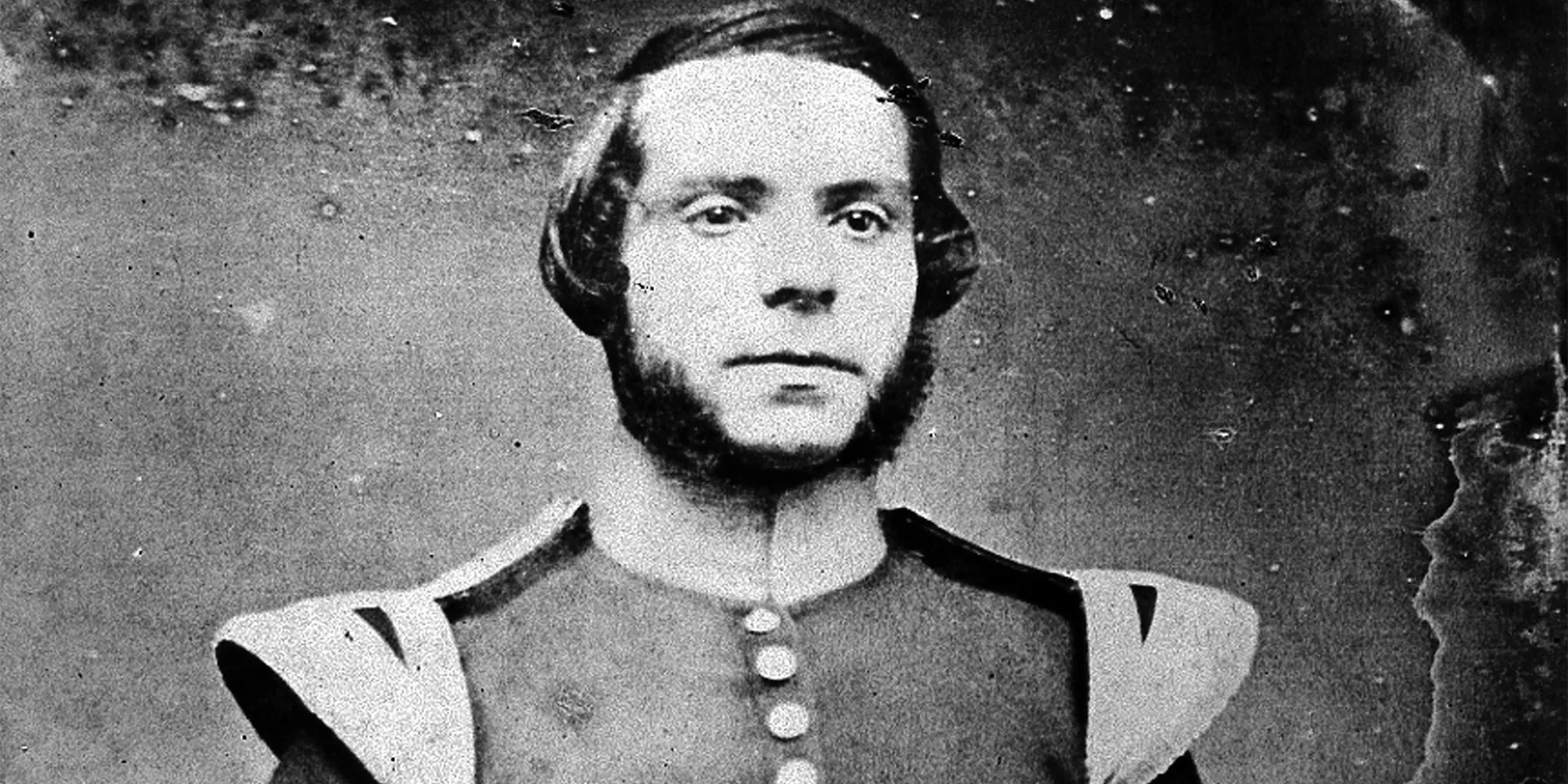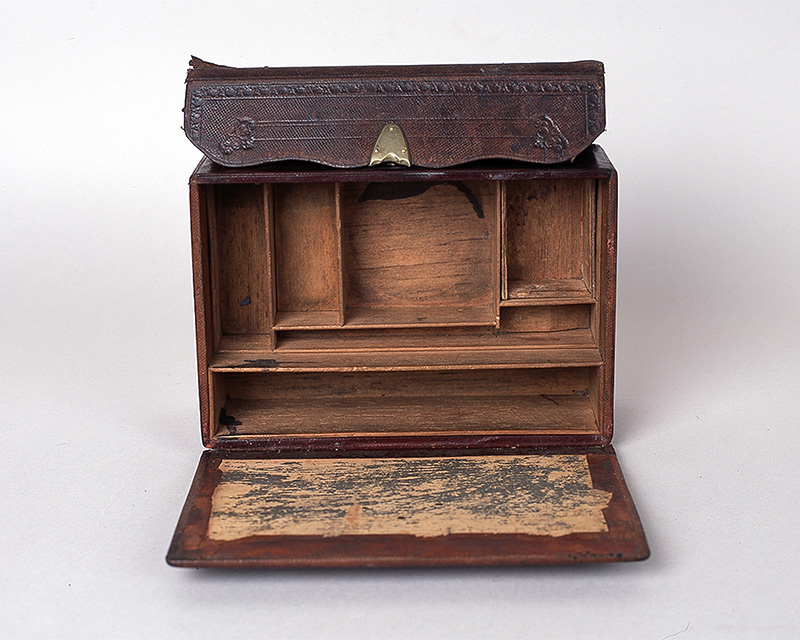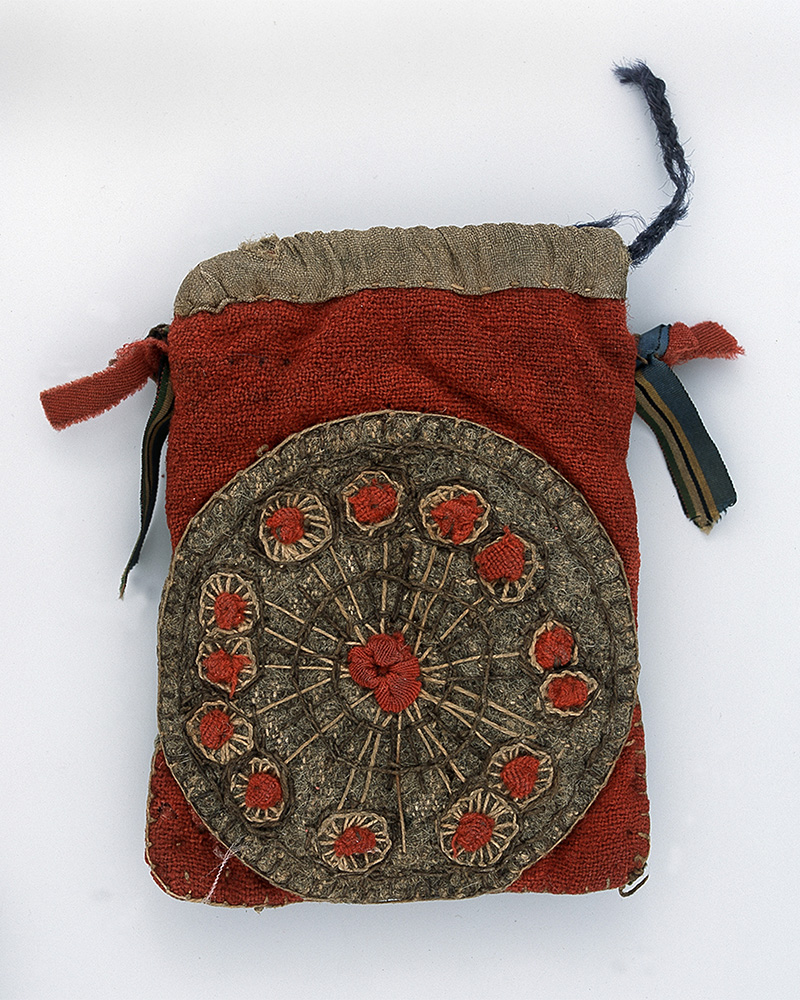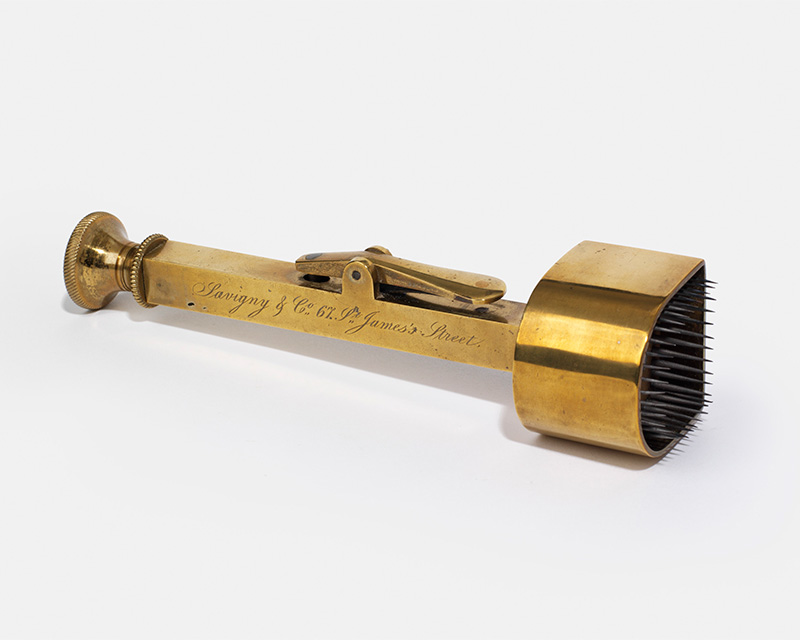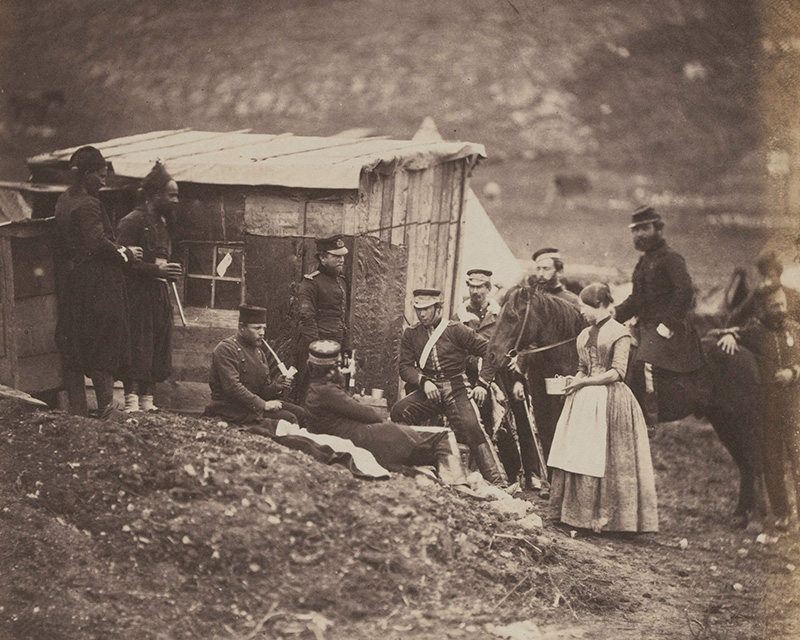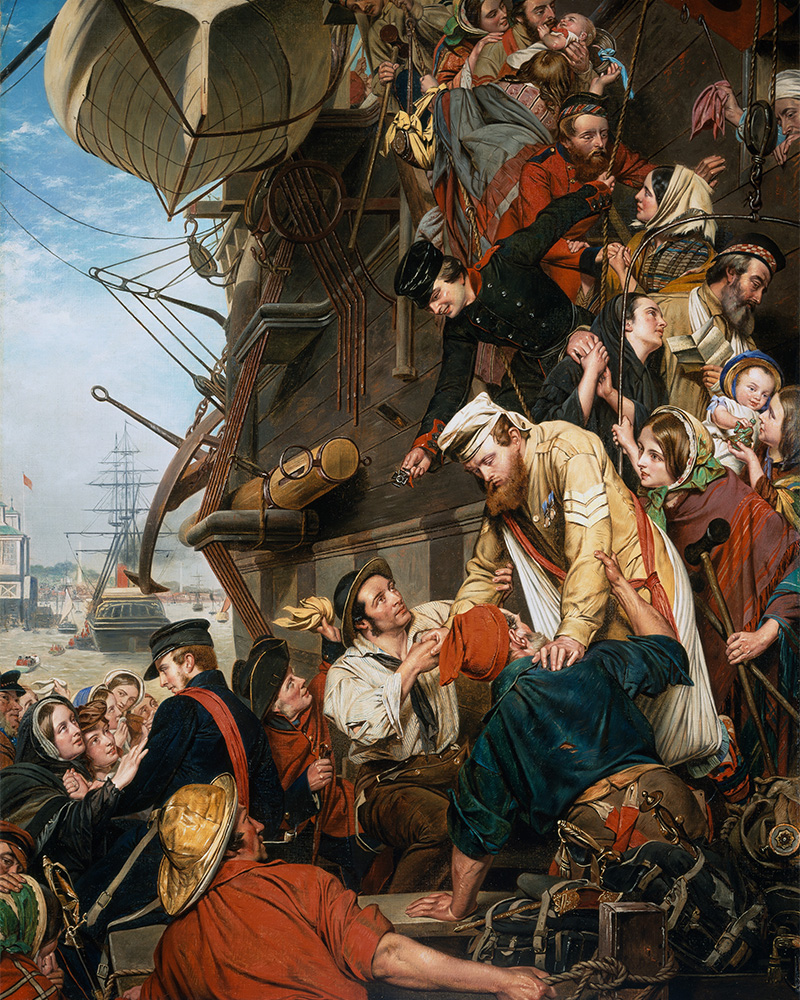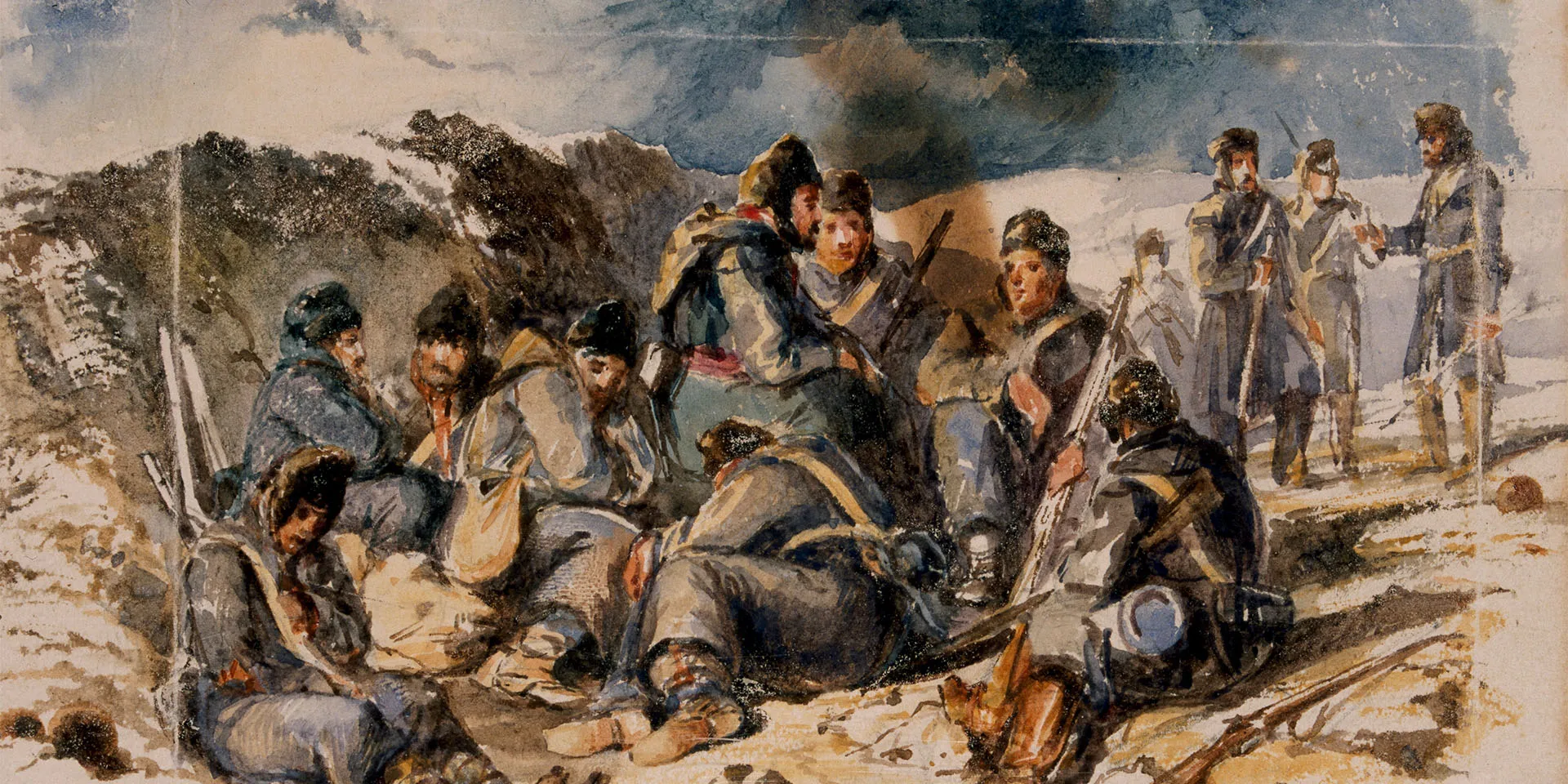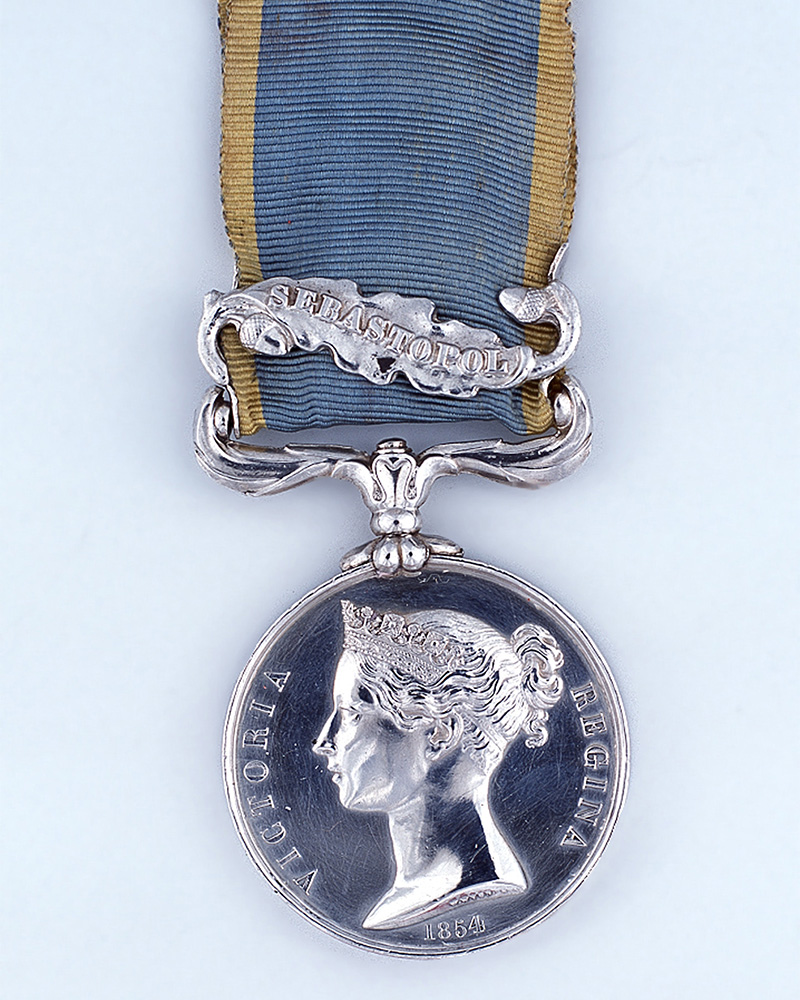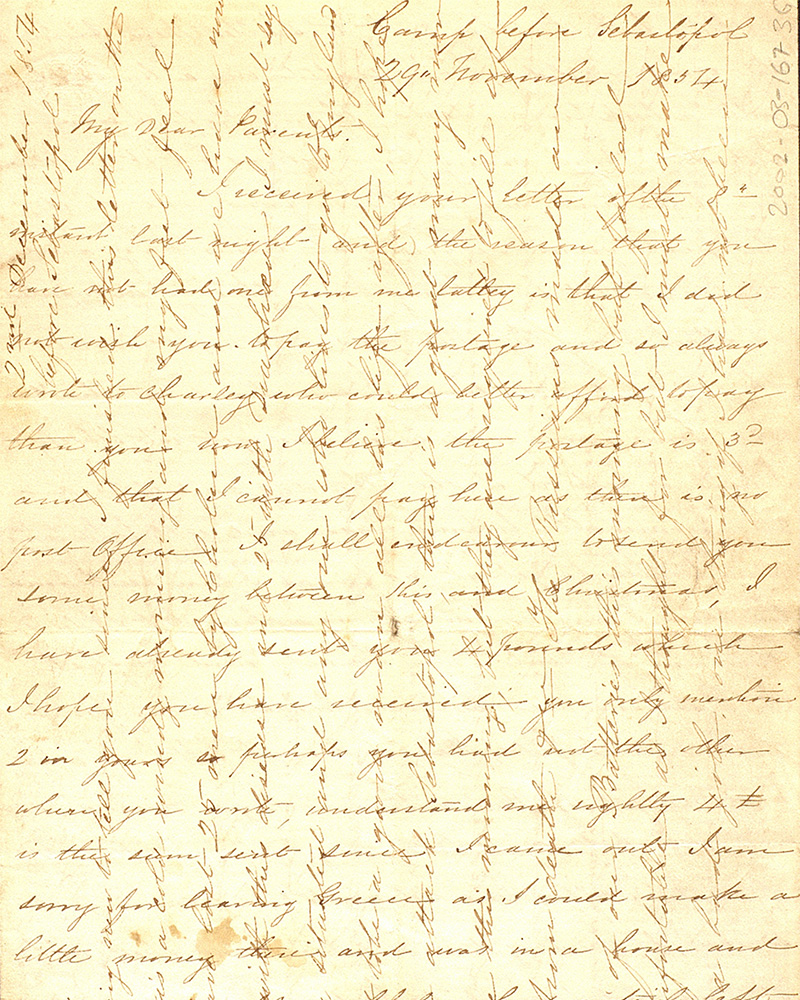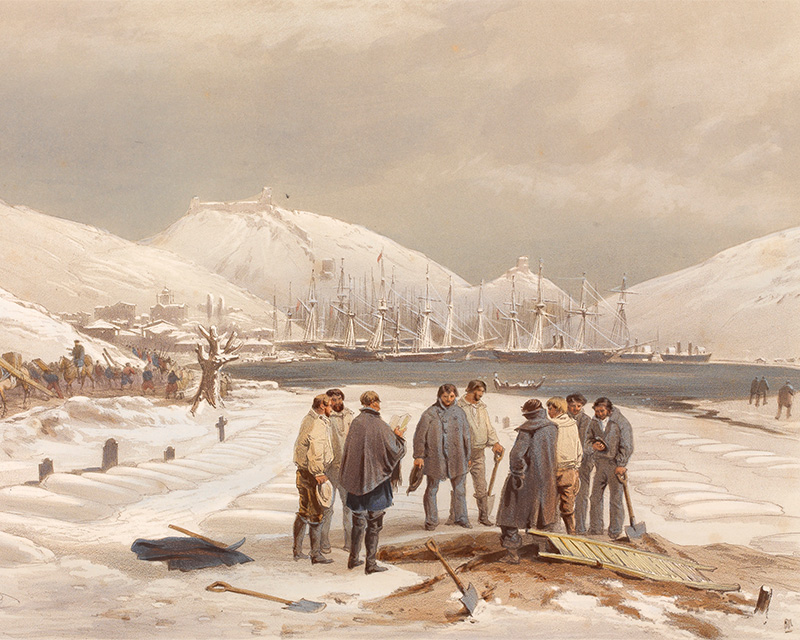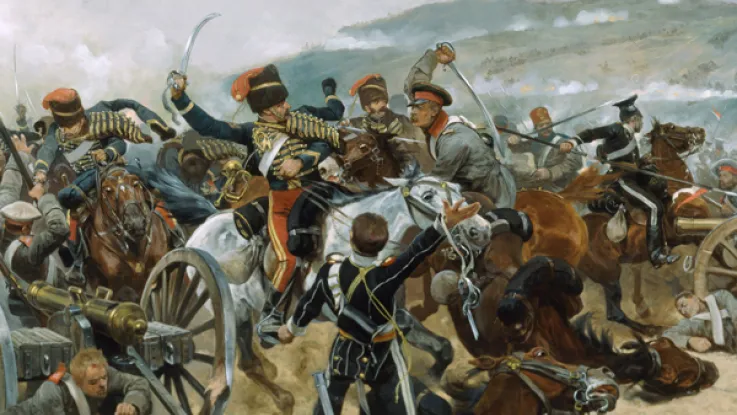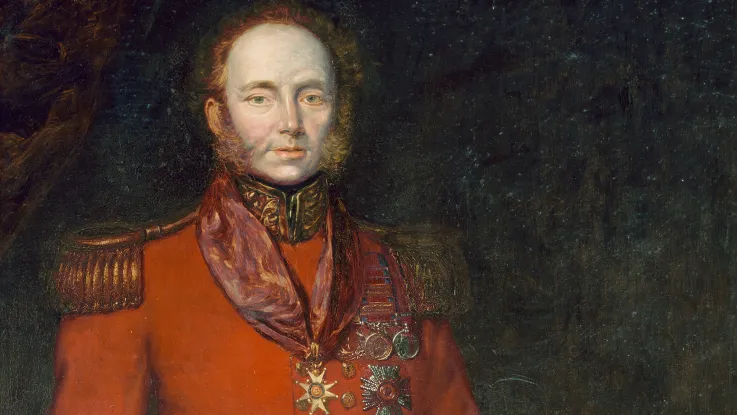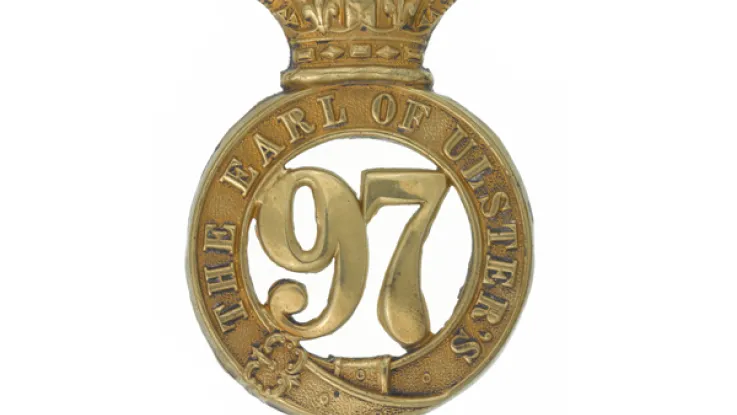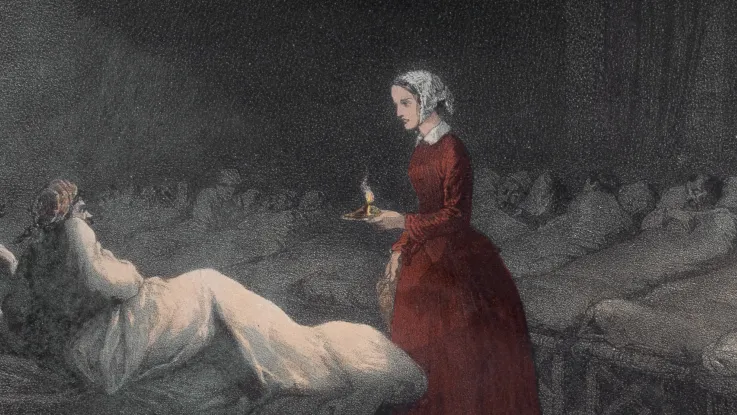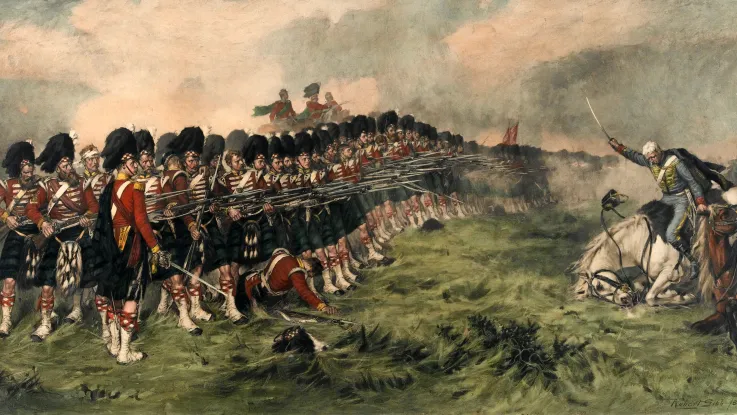The life of a Victorian soldier
Born in Stepney, London, Frederick Newman joined the Army in 1844 at the age of 15. Enlisting at such a young age was not uncommon during this period, but perhaps indicates that Newman was from a poor family. The life of a Victorian soldier was hard and was often taken up only by those in desperate circumstances.
Whatever the disadvantages of his background, Frederick clearly worked hard with his education. A series of letters that he wrote to his family and friends reveal him to be thoughtful and sensitive, but also religious and high-minded, with a keen sense of duty.
They also shed light on the day-to-day experiences of a typical Victorian soldier, containing many interesting details about living conditions, attitudes, and the many dangers, difficulties, and frustrations he endured.
An Irish regiment?
Newman's unit had been raised as the 97th Regiment of Foot in 1824. It was regarded as an Irish regiment because most of its original soldiers had been recruited in Ireland. This identity was reinforced in 1826, when it was granted the additional title of ‘The Earl of Ulster's’, one of several title's borne by Prince Frederick, the younger brother of King George IV and the Army’s commander-in-chief.
At this time, however, regimental identities were not as deeply rooted in localities as they would later become. Indeed, the regiment’s Irish character was curiously at odds with the fact that it was raised and headquartered in Hampshire. Given this anomaly, it is unsurprising that many English recruits, such as Newman, joined its ranks.
Jamaica
Newman’s first foreign deployment was Jamaica, arriving there in 1848. Caribbean postings had long been tantamount to a death sentence for British troops, who frequently fell victim to tropical diseases, such as yellow fever.
Fortunately for Frederick, this problem had been mitigated in Jamaica just a few years earlier. In 1841, a new barracks had been constructed in the Blue Mountains, where the high altitude greatly reduced this threat.
Still, disease remained a serious problem. In a letter to his brother Charley, who was also in the British Army, Newman mentioned a worrying outbreak of cholera among the troops, which made him anxious to leave Jamaica.
Trials and tribulations
As well as the threat of disease, more mundane concerns, including the cost of living, were already making army life unpalatable to Frederick. Eventually, he resolved to save up his money and purchase his discharge.
This was the only legal way out of the Army. At his time of enlistment, there was no short-service option available to recruits and Newman would have been obliged to sign on for a full 21 years’ service. This could all too often prove to be a life sentence.
Desertion was commonplace, but could carry a heavy punishment, such as flogging, having the letter ‘D’ tattooed on the face or body, or even death.
Money
Soldiers' basic pay at the time was just a shilling a day, which placed them in the lowest-paid category of workers. Industrious, upright men, like Newman, could hope to increase their salary significantly by gaining promotion. However, they also had to incur many costs - known as ‘stoppages’ - for things like laundry, food, the upkeep of the barracks, and replacing lost or damaged clothing and kit.
To save enough money, Frederick must have lived very carefully and suffered significant hardships. However, on learning of his brother's own unhappiness in the Army, he decided to offer up these savings so that Charley could buy his way out instead.
‘I have sent an order for £30 on your paymaster, to enable you to purchase your discharge... it is as much as I can give you and believe me if you go home, and be foolish enough to enlist again I will never as long as I live do anymore for you. Consider what a time, and how careful and steady, I have been to accumulate so much, this was intended for my discharge on arrival in America, but if God spares my life, I can do better in the service than you, and you may yet do well in the world.’Frederick Newman on helping to pay for his brother's discharge from the Army — 1850
Nova Scotia
Newman’s next posting, in 1851, was Halifax, Nova Scotia (now part of Canada). The cold climate there was a stark contrast to the stifling heat of Jamaica.
By this time, Frederick's interest in medicine, along with his hard work and good character, had enabled him to attain the rank of hospital sergeant.
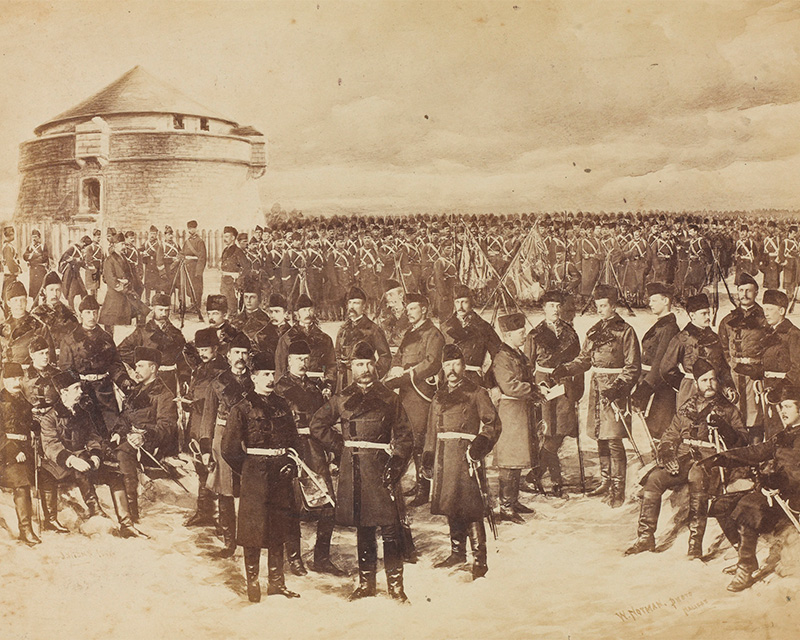
Officers and men of the 97th (Earl of Ulster’s) Regiment in Halifax, Nova Scotia, c1880
Separation
Newman's letters from Halifax provide further insights into the difficulties of a soldier’s life. Family problems were chief among his concerns. His letters are full of enquiries after the wellbeing of his siblings and parents, a powerful illustration of the strain of prolonged separation.
His brother Charley - in whom he had invested not only money, but also hope that he would succeed in life - remained a preoccupation. Another cause for concern was the news of his father’s extra-marital affair. This aroused considerable pious anger within Frederick and a deep sense of anxiety regarding his mother’s welfare.
Marriage
Also among Newman's Halifax correspondence is a long love letter to a young lady named Clara, whom he clearly had an eye to marry. However, marriage for a soldier in this period was difficult. It was generally discouraged and required a commanding officer’s permission, which was not always forthcoming.
The wives of those men who had been granted permission were regarded as ‘on the strength’ of the regiment and were entitled to draw rations. They were also allotted barrack accommodation, which was very basic and was totally inadequate for the purpose of raising a family.
Greater problems arose when the regiment was posted abroad, as provision could only be made for a small number of wives to come along. Those selected would have to endure all the hardships of foreign travel, harsh climates, and life on campaign. Those left behind, on the other hand, would often have to fend for themselves and endure periods of separation which could last for many years, or end in the sad news of their husband’s death.
Clearly things did not work out with Clara, as Frederick remained unmarried. In a later letter, he had changed his views, expressing his aversion to the idea of marrying. He specifically comments on the hardships inflicted upon women attached to a regiment that was constantly on the move, and the problems presented by the vagaries of army justice which rendered his status as a sergeant highly precarious.
‘There is no place allotted for a soldier’s wife on board ship separate from the remainder. It is true all the women are together but huddled up in such a manner as to leave privacy out of the question...so if you should happen to be placed alongside of a lady who had half a dozen children you would be constantly annoyed with the little urchins vomiting over your things and so many, many annoyances that I cannot reconcile the idea of my wife having to put up with.’Frederick Newman on the problems of a soldier marrying — 1853
Home again
Newman finally returned to Britain in 1853. His safe arrival after such a long period away was a cause of both elation and relief.
He took up postings at several places in the south of England, including Canterbury and Windsor. He was kept busy in his medical work, but continued to feel irritation with the constraints of army life.
After an inspection in which a general found fault with the length of the men’s whiskers, he complained to Charley: ‘You see not even the hair of our head can we call our own.’
Despite these frustrations, service in England was comparatively pleasant. Although still keen to leave the Army, Frederick was also becoming reconciled to his circumstances.
Unfortunately, his posting in England was all too brief. The outbreak of the Crimean War against Russia in 1854 required the full mobilisation of the Army. And the 97th Foot found itself among the many regiments now being despatched east.
‘Oh! You cannot imagine what my feelings are now that I see the old country again... thank God that he has spared me through all the various dangers that have beset me from climate, disease, and sea voyage that I last saw you.’Frederick Newman on his return home to England — 1853
Greece
In June 1854, Newman's regiment arrived in Greece and was stationed in an area near Athens. Here, the men found their living conditions to be very trying, with the problem of strong winds and punishing heat compounded by a poor water supply.
These circumstances rendered the men highly vulnerable to disease. The regiment was stricken by cholera, losing 120 men within three months. Frederick won the praise of his commanding officer for his work tending the sick, before himself succumbing to a nasty bout of fever. Unfortunately, this was just a taste of the horrors yet to come.
Crimea
In November 1854, the regiment was deployed to the seat of war in the Crimea. The British Army was notoriously unprepared for this conflict, lacking all manner of supplies and suffering severely from poor administration. These problems accumulated into a terrible crisis in the winter of 1854-55. The whole army was ravaged by cold, hunger and disease, which left thousands dead and overwhelmed the inadequate medical services.
Newman recounted his experience of this calamity in a letter to his parents on 29 November. Sadly, this was to be his last. Just two weeks later, he himself fell victim to disease, dying either of fever or cholera on 14 December.
Although he did not live to see it, Frederick would have taken great satisfaction from the fact that his brother Charley did indeed succeed in life, establishing a tailoring business which brought the family modest prosperity.
'We are now about 3 miles from Sebastopol and under canvas tents, the rain pouring in torrents and all around miserable. Cholera has broke out amongst the poor fellows who are exposed in the Trenches day and night with nothing but their big coats to shelter them from the rain or cold... This terrible Cholera... has made fearful ravages here. I have just commenced to write again and there are now six poor fellows lying dead.’Frederick Newman, from his last letter — 29 November 1854

